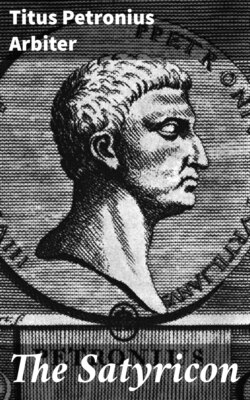Читать книгу The Satyricon - Titus Petronius Arbiter - Страница 4
На сайте Литреса книга снята с продажи.
PREFACE
ОглавлениеTable of Contents
Among the difficulties which beset the path of the conscientious translator, a sense of his own unworthiness must ever take precedence; but another, scarcely less disconcerting, is the likelihood of misunderstanding some allusion which was perfectly familiar to the author and his public, but which, by reason of its purely local significance, is obscure and subject to the misinterpretation and emendation of a later generation.
A translation worthy of the name is as much the product of a literary epoch as it is of the brain and labor of a scholar; and Melmouth's version of the letters of Pliny the Younger, made, as it was, at a period when the art of English letter writing had attained its highest excellence, may well be the despair of our twentieth century apostles of specialization. Who, today, could imbue a translation of the Golden Ass with the exquisite flavor of William Adlington's unscholarly version of that masterpiece? Who could rival Arthur Golding's rendering of the Metamorphoses of Ovid, or Francis Hicke's masterly rendering of Lucian's True History? But eternal life means endless change and in nothing is this truth more strikingly manifest than in the growth and decadence of living languages and in the translation of dead tongues into the ever changing tissue of the living. Were it not for this, no translation worthy of the name would ever stand in need of revision, except in instances where the discovery and collation of fresh manuscripts had improved the text. In the case of an author whose characters speak in the argot proper to their surroundings, the necessity for revision is even more imperative; the change in the cultured speech of a language is a process that requires years to become pronounced, the evolution of slang is rapid and its usage ephemeral. For example Stephen Gaselee, in his bibliography of Petronius, calls attention to Harry Thurston Peck's rendering of "bell um pomum" by "he's a daisy," and remarks, appropriately enough, "that this was well enough for 1898; but we would now be more inclined to render it "he's a peach." Again, Peck renders "illud erat vivere" by "that was life," but, in the words of our lyric American jazz, we would be more inclined to render it "that was the life." "But," as Professor Gaselee has said, "no rendering of this part of the Satyricon can be final, it must always be in the slang of the hour."
"Some," writes the immortal translator of Rabelais, in his preface, "have deservedly gained esteem by translating; yet not many condescend to translate but such as cannot invent; though to do the first well, requires often as much genius as to do the latter. I wish, reader, thou mayest be as willing to do the author justice, as I have strove to do him right."
Many scholars have lamented the failure of Justus Lipsius to comment upon Petronius or edit an edition of the Satyricon. Had he done so, he might have gone far toward piercing the veil of darkness which enshrouds the authorship of the work and the very age in which the composer flourished. To me, personally, the fact that Laurence Sterne did not undertake a version, has caused much regret. The master who delineated Tristram Shandy's father and the intrigue between the Widow Wadman and Uncle Toby would have drawn Trimalchio and his peers to admiration.— W.C.F.
